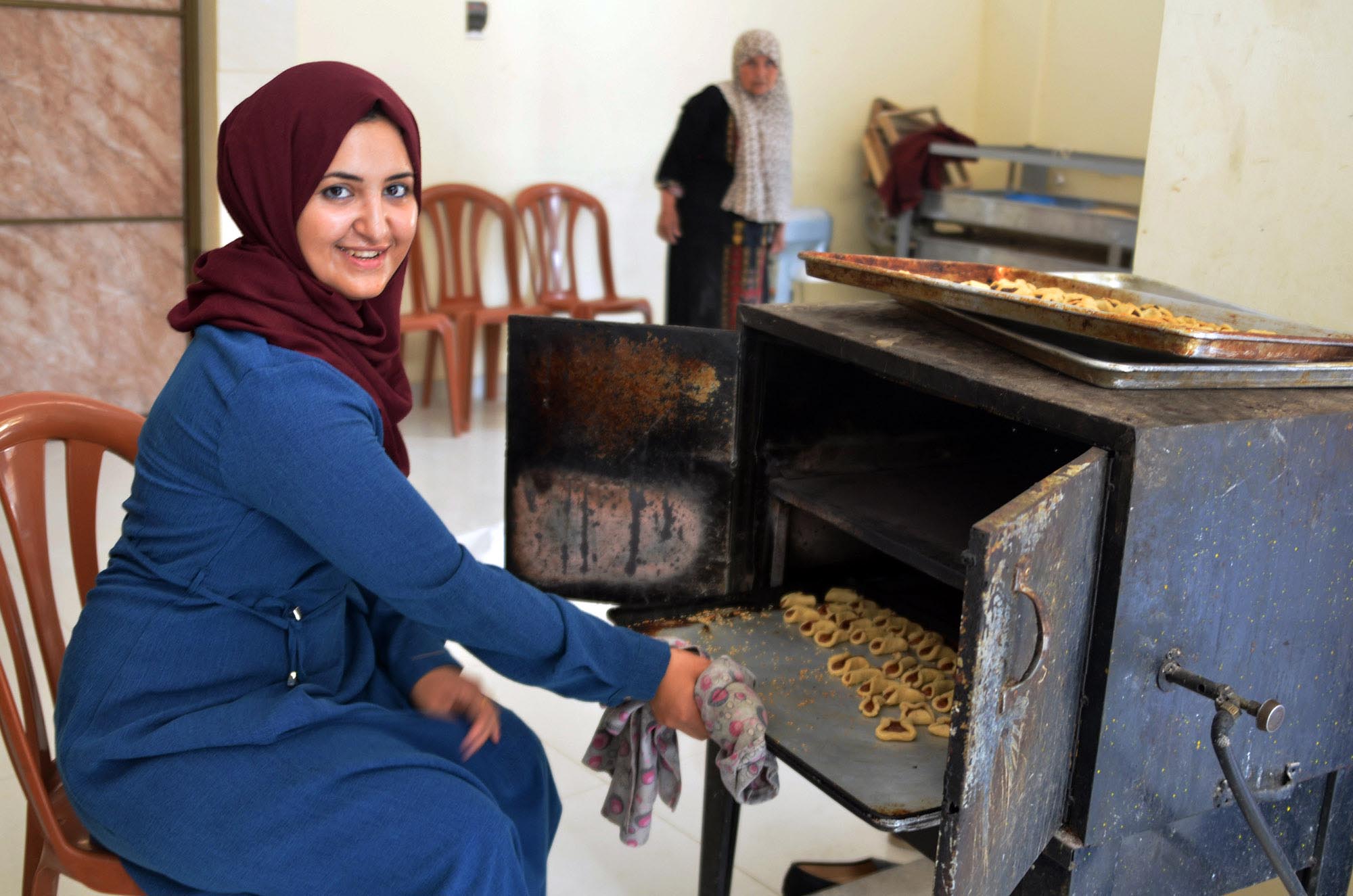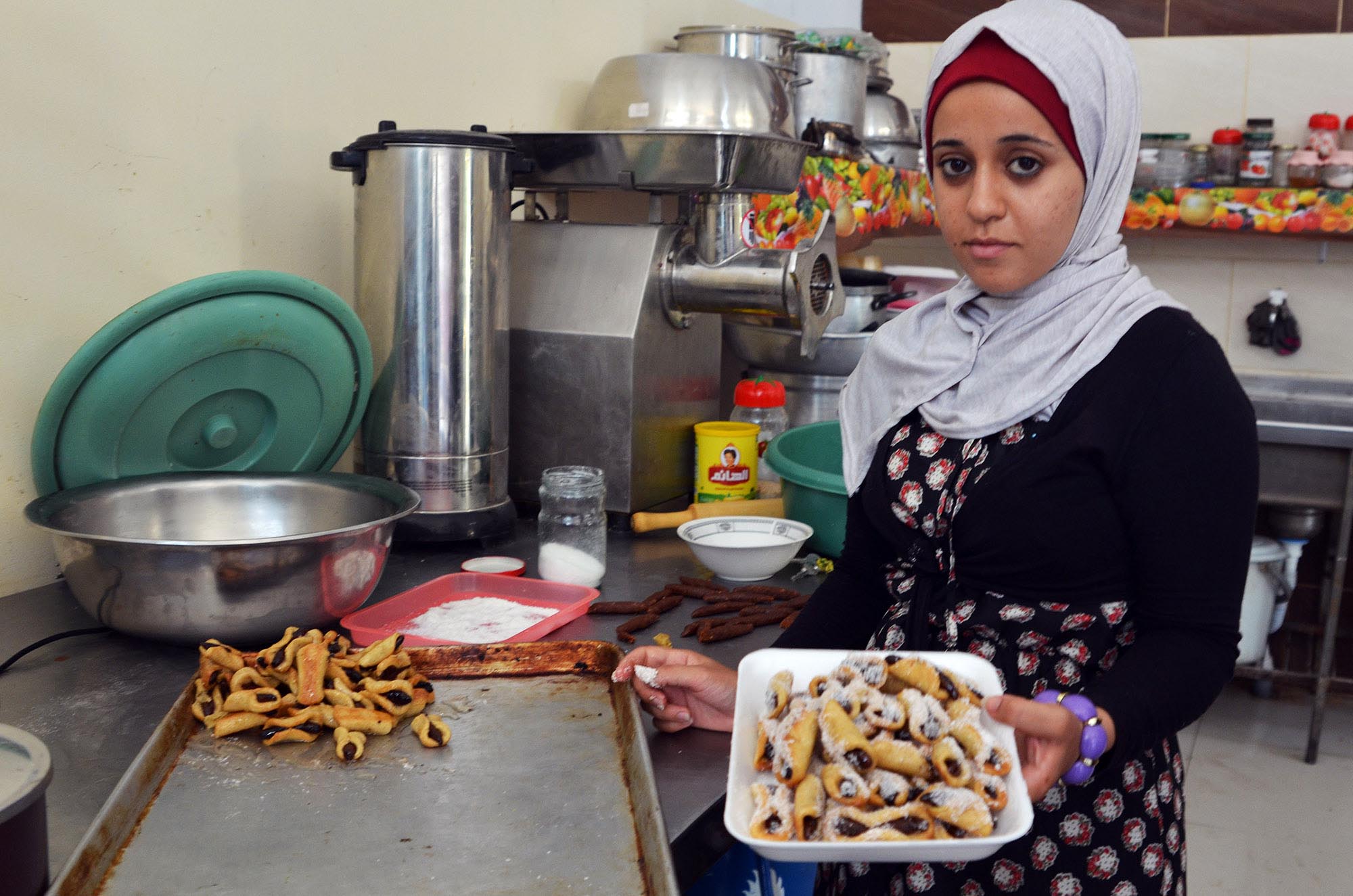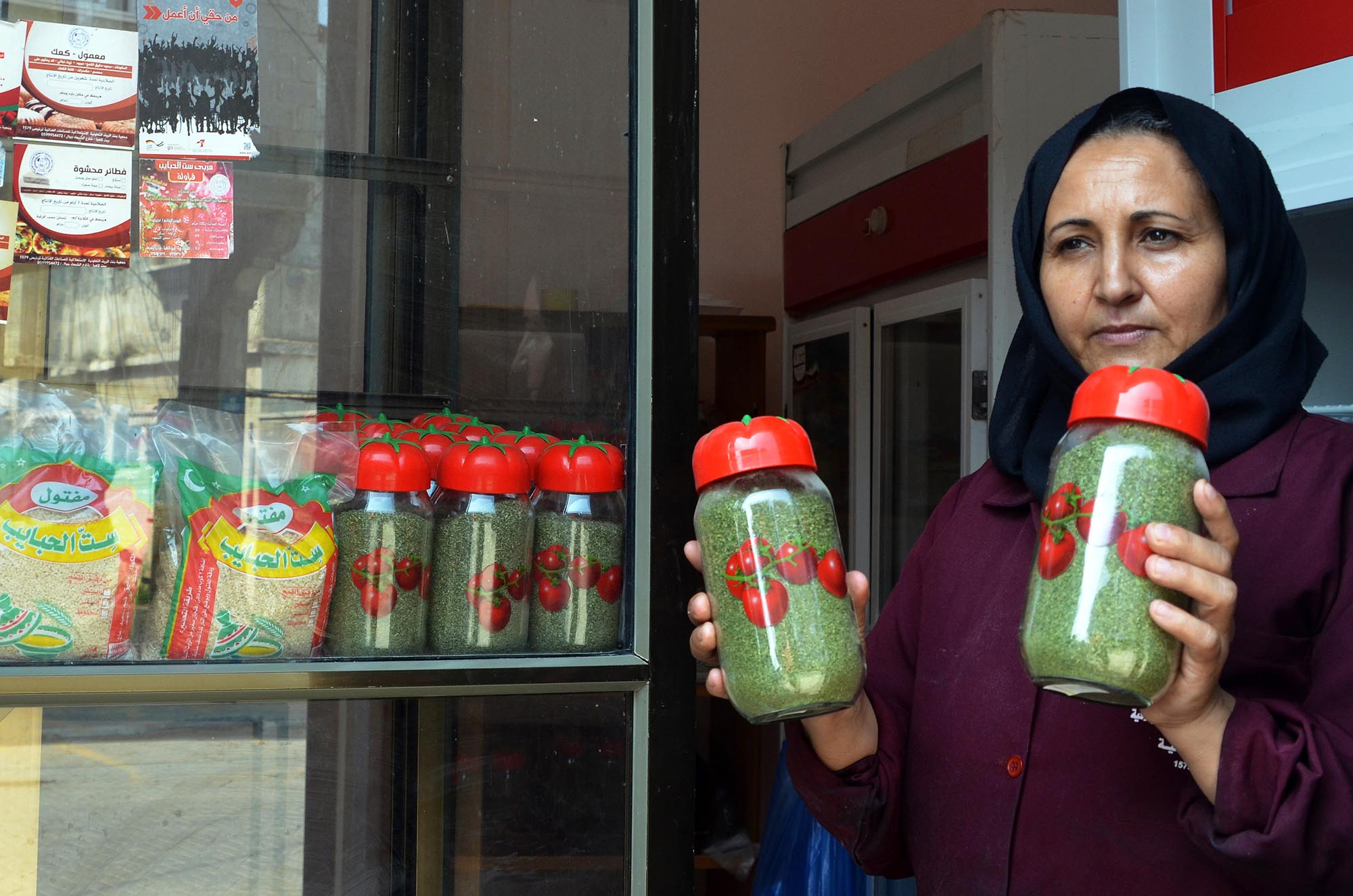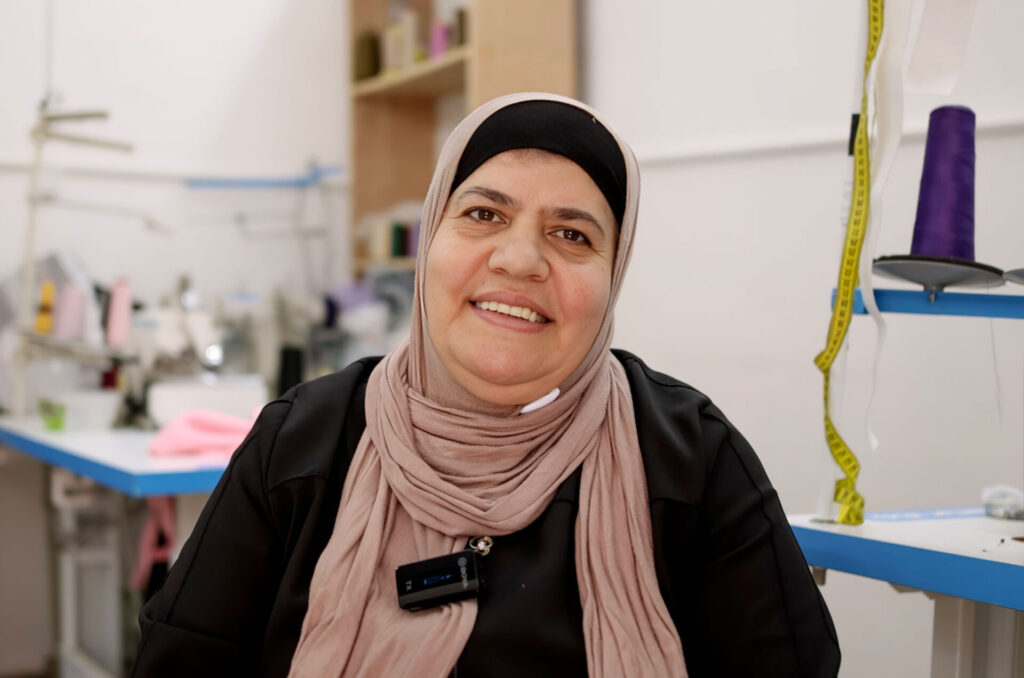Sep, 2017
Aya Kilani takes out a hot tray of traditional Gazan sweets from her oven. “This is baked kaak stuffed with dates and nuts. It’s all made locally inside this cooporative."
Aya is a 22-year-old from Beit Lahia in northern Gaza. She describes herself as a timid person, but teamwork with other women has empowered her to break the ice and become more confident.
Aya studied to be a medical secretary at a local university, but high rates of unemployment in Gaza meant that she had to stay home for a year. Luckily, a neighbor introduced her to the cooperative and got her out of the house and up on her feet again. “The number of college graduates is way bigger than the need in the local market and if we don’t seize opportunities, we’ll become depressed,” she said. Aya’s role began in social media, which she used to promote Sit El Habayeb (meaning “the beloved mother”) and co-op products to schools and institutions.
What keeps Aya motivated is a little saying that she reminds herself of every morning. “Live every day of your life as if it’s the last. One of those days will surely be the last.”


The number of college graduates is way bigger than the need in the local market and if we don’t seize opportunities, we’ll become depressed.
On the other side of the city, Shorouq El Louh, 21, makes a deal with a shopkeeper to bake maamoul cookies and display them on his shop’s shelves, along with other treats. “It’s win-win deal, he also can make a profit, depending on how much he sells,” she says as the shopkeeper nods.
Shorouq, who studied office administration, lives in Beit Lahia like Aya. This makes it easier for her to commute to the co-op. Despite the poor humanitarian situation in Gaza as a whole, Shorouq is proud of her city. “The current conditions imposed on people my age are so unfair. It creates tough challenges, but with a new concept like this cooperative, we can create new opportunities in food production. It feels so right,” she said.
Shorouq stays motivated with this saying: “Easy come, easy go.” As she smiles, she adds, “Here nothing comes easy!”


Easy come, easy go. Here nothing comes easy!
Om Amjad has run the co-op for the past five years. When she started, the kitchen lacked food-processing equipment and other kitchen utensils. She was pleased when Anera asked them to prepare a list of needs and provided them with pots, pans, fridges, ovens and tools for packaging and wrapping the products. They now can produce white cheese, pickled hot peppers, tomato paste, a locally produced type of couscous called maftoul, and other foods.
When schools are back in session, the co-op women make pastries and send it to schools upon order. “If it’s school time, a wedding or birthday party, we try make whatever they ask for,” she said. Recently, Om Amjad and her team created a small menu to help them advertise for their products.
In the co-op, the women roll up their sleeves as they prepare for two weeks of Eid al-Adha festivities. They’re also looking to partner with eight other women’s co-ops that Anera supports.
“Let’s make good decisions! We do the strawberry jam for its season, so we can sell it at a higher price. We can store the grapes leaves for later seasons,” she said. “This is how we keep this co-op afloat.”

Under an IR-USA funded agricultural program, Anera is working with eight women’s co-ops across Gaza to improve the livelihoods and resilience of poor families. The project will also significantly increase employment and income generation along the broader agricultural product value chain in Gaza.

